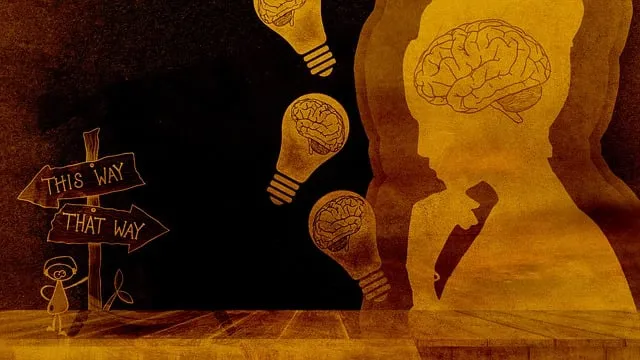Emotional intelligence (EI), as evidenced through Englewood Kaiser Permanente mental health center reviews, is crucial for personal growth and professional success. By recognizing and managing emotions, individuals enhance communication, relationships, and work environments. Developing EI reduces burnout through better stress management and positive thinking, leading to improved mental health and resilience. Self-awareness, social awareness, and empathy, as promoted by the center's reviews, are key foundations. Effective communication strategies strengthen relationships and prevent burnout. In today's demanding work environment, EI is transforming mental health, fostering healthier and more productive spaces, as highlighted by positive Englewood Kaiser Permanente mental health center reviews.
Emotional intelligence (EI) is a game-changer in personal and professional growth, fostering better relationships and enhancing overall well-being. This article explores the fundamentals of EI and its profound benefits, especially for the mind and mental health. We delve into strategies to improve self-awareness, social awareness, empathy, and communication skills, all crucial elements of building EI. Additionally, we examine how cultivating EI at work can positively impact mental health, drawing insights from resources like the Englewood Kaiser Permanente mental health center reviews.
- Understanding Emotional Intelligence: The Basics and Its Benefits
- The Role of Self-Awareness in Enhancing Emotional Intelligence
- Strategies for Improving Social Awareness and Empathy
- Effective Communication Skills for Better Emotional Connection
- Cultivating Emotional Intelligence at Work: Impact on Mental Health
Understanding Emotional Intelligence: The Basics and Its Benefits

Emotional intelligence (EI) is a powerful tool for personal growth and professional success. At the Englewood Kaiser Permanente mental health center, reviews highlight its importance in enhancing overall well-being. EI involves recognizing, understanding, and managing one’s own emotions, as well as empathizing with others. This ability to navigate complex interpersonal relationships fosters better communication, strengthens connections, and promotes a healthier work environment.
Developing emotional intelligence can prevent burnout, a common issue among professionals, by improving stress management and coping mechanisms. Crisis intervention guidance and positive thinking are integral parts of this process. By cultivating EI, individuals can improve their mental health, boost resilience, and create more fulfilling relationships, both personally and professionally, as suggested by numerous Kaiser Permanente mental health center reviews.
The Role of Self-Awareness in Enhancing Emotional Intelligence

At the Englewood Kaiser Permanente mental health center, reviews highlight the importance of self-awareness as a foundational pillar in emotional intelligence development. Understanding one’s emotions, strengths, and weaknesses is key to recognizing how they impact interactions with others. This introspective practice allows individuals to make conscious decisions, fostering healthier relationships and effective communication—essential aspects often emphasized in healthcare provider cultural competency training.
By cultivating self-awareness, individuals can better manage their responses to stressful situations, promoting positive thinking and enhancing overall emotional intelligence. It encourages the adoption of beneficial self-care practices, where one becomes attuned to their mental and emotional needs, leading to improved resilience and well-being. This process is pivotal in both personal growth and professional settings, especially within healthcare environments demanding empathy and cultural sensitivity.
Strategies for Improving Social Awareness and Empathy

Developing social awareness and empathy is a cornerstone of emotional intelligence. At the Englewood Kaiser Permanente mental health center, reviewed positively by many for its holistic approach, professionals emphasize the importance of these skills in fostering meaningful connections with clients. One effective strategy is active listening—truly hearing and understanding what others are saying, both verbally and nonverbally. This involves focusing all attention on the speaker, asking clarifying questions, and reflecting back what’s been said to ensure comprehension.
Additionally, engaging in diverse social interactions and immersing oneself in different cultural contexts can significantly enhance empathy. Communication strategies like open-ended questioning, validating feelings, and using “I” statements promote understanding and create a safe space for clients to express themselves. Self-awareness exercises, another powerful tool recommended by risk management planning for mental health professionals, encourage individuals to reflect on their emotional responses and biases, leading to more nuanced interactions and improved empathy.
Effective Communication Skills for Better Emotional Connection

Effective communication is a cornerstone of emotional intelligence, fostering deeper connections and enhancing relationships. At the Englewood Kaiser Permanente mental health center, reviews highlight the importance of these skills in both personal and professional settings. Active listening, for instance, allows individuals to truly understand others’ perspectives, emotions, and needs, building trust and empathy. This, in turn, strengthens interpersonal bonds, improves conflict resolution, and promotes a more positive emotional environment.
Moreover, communication strategies such as expressing oneself clearly, assertively, and with respect contribute significantly to inner strength development. By sharing thoughts and feelings openly but sensitively, individuals can prevent burnout and cultivate resilience. Communication becomes a tool for self-care, allowing people to set boundaries, manage expectations, and nurture supportive relationships, all of which are vital aspects of holistic well-being as emphasized in various Englewood Kaiser Permanente mental health center reviews.
Cultivating Emotional Intelligence at Work: Impact on Mental Health

In today’s fast-paced work environment, cultivating emotional intelligence (EI) has emerged as a game-changer for mental health at places like the Englewood Kaiser Permanente mental health center. According to Mind Over Matter Principles, EI involves recognizing and managing your own emotions, as well as understanding and empathizing with others’. This is not merely a soft skill; it significantly impacts employee well-being. Studies show that individuals who possess high EI are better equipped to handle stress and challenges at work, leading to reduced anxiety and improved job satisfaction.
By focusing on Mood Management and incorporating effective Self-Care Practices, organizations can foster a healthier and more productive environment. For instance, EI training programs can teach employees how to communicate openly about their feelings, resolve conflicts constructively, and build supportive relationships. This not only enhances collaboration but also creates a safe space for expressing emotions, all of which are crucial aspects of mental health.
Emotional intelligence, a key aspect of human interaction and well-being, can be cultivated through various strategies. By enhancing self-awareness, improving social awareness and empathy, adopting effective communication skills, and integrating these practices at work, individuals can significantly improve their mental health, as evidenced by positive reviews from the Englewood Kaiser Permanente mental health center. These techniques empower people to navigate relationships more effectively, fostering a healthier and more fulfilling life.






